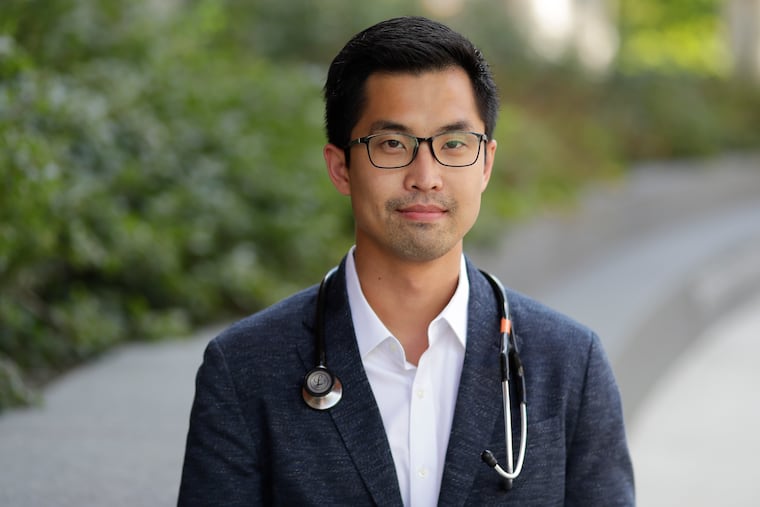Philly surgeon-in-training tries to find work-life balance | Expert Opinion
If we push patients towards their goals too quickly, these setbacks often end up slowing them down even more, or at times, causing terrible, preventable complications.

“I just feel too lightheaded when I try to sit up,” my patient said to me, following a major operation.
“That’s OK,” I said, “Let’s try again in a few hours.”
Based on my exam, I was not worried about an ongoing problem or a complication in the patient’s recovery. I thought the person was already heading in the right direction, and simply needed a little more time.
People recover at their own pace. Often, the patient knows best what he or she is ready to do. Some people are ready to get out of bed and walk around within a day or two of surgery, but some are not. And as providers, we have to understand and respect these individual differences.
That is why many of our prescriptions say:
Increase the dose of this medication as tolerated.
Advance the patient’s diet as tolerated.
Decrease the dose of pain medications as tolerated.
These words recognize the fluid nature of when our bodies are ready to move forward. The pace needs to feel productive and challenging, but never overwhelming.
Every provider has seen what can happen when we are not mindful of what the body is ready to do.
Feed someone too much before the person is ready to eat, and the patient can become sick and vomit. Re-start home doses of blood pressure medications too quickly while the patient is still recovering, the patient will feel weak, lightheaded, and potentially faint.
If we push patients towards their goals too quickly, these setbacks often end up slowing them down even more, or even causing terrible, preventable complications.
But despite understanding this about our patients, I wonder whether we, as providers, allow ourselves the same degree of flexibility.
Instead of thinking about the optimal pace at which I can advance my career, my approach has always been to accept the responsibilities upfront and somehow make it work down the road. Although I am very mindful of how much I push my patients and the fine line between progress and harm, when was the last time that I thought about my own work-life balance in those same terms?
I seldom think about or ask myself whether I am ready when it comes to adding more projects to my plate. Instead, I tell myself that I’ll know when I am nearing a breaking point.
We need to be cognizant of how much stress and workload we place on ourselves. Simply applying more grit to function at a level of 110, when the optimal pace is 90, is unsustainable.
From taking care of patients, we know people are at their best when progress comes in moderation. In some ways, we need to extend the same insight into our own lives. Recovery and growth are two different sides of the same coin.
Advance as tolerated. Increase the dose as tolerated. Sometimes in our rapid growths, we all need a little more time.
Jason Han is a cardiac surgery resident at a Philadelphia hospital.